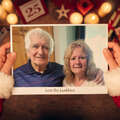Adam's Heart Valve Surgery Blog – Page 79
Heart Valve Size – How Big Is A Heart Valve?
By Adam Pick on October 31, 2007
I just received a fantastic question. The question reads, “Adam… Do you know how big our heart valves are?”
The interesting thing… In all my research about heart valves… In all my interviews with patients, nurses, cardiologists and surgeons, I have never specifically found a specific answer to that question.
“Why?” you may be thinking to yourself.
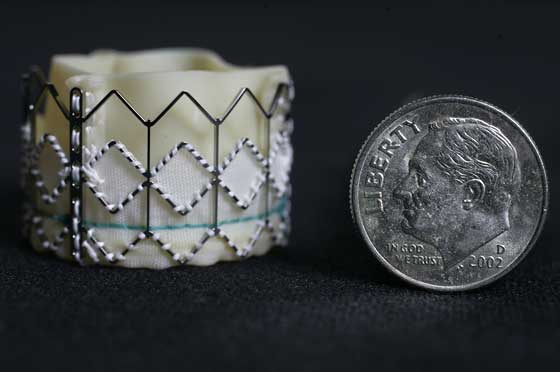
Tricuspid Regurgitation – Symptoms, Surgery & More
By Adam Pick on October 31, 2007
As many of you know, I had double heart valve replacement due to a very leaky aortic valve that suffered from from calcified aortic leaflets. My problematic valve was a bicuspid aortic valve (that was both stenotic and had regurgitaiton).
I knew about my defective valve since the time I was 5 years old. That said, my condition was considered a congenital heart condition and I had a heart murmur for the first 33 years of my life.
I say “had” because, since my surgery a few years ago, I no longer have a heart murmur or any leaking heart valve symptoms.
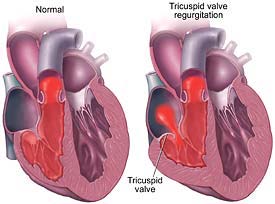
When Was The First Heart Surgery?
By Adam Pick on October 29, 2007
Have you ever wondered when the first heart surgery was performed?
Hmmmmm….
Well, I couldn’t resist the opportunity to learn more about cardiac surgery history so I Google’d the term, “first heart surgery”. Guess what? I immediately found a reference to the first heart surgery. Here is what Wikipedia had to say about the first heart surgery:
“The first heart surgery on the heart itself, performed without any heart surgery complications, was by Dr. Ludwig Rehn of Frankfurt, Germany, who repaired a stab wound to the right ventricle on September 7, 1896.”
Pretty amazing to think that the first heart surgery happened over 100 years ago.
As I can attest, following my double heart valve replacement surgery, patients today are blessed to have pioneers like Dr. Ludwing Rehn of Germany as part of our cardiac surgery history.
Keep on tickin!
Adam
How Do Sternum (Sternal) Wires Work During Heart Surgery?
By Adam Pick on October 29, 2007
Although minimally invasive procedures are becoming more prevalent in the heart valve surgery community, open heart surgery via a broken sternum is still performed in most cases involving heart valve repair and heart valve replacement surgery.
That said, the sternum is “cracked” through a medical procedure known as a median sternotomy procedure. To learn more, click here.
Yes, I know…
The sound of that for a patient or a caregiver is tough to contemplate. I remember asking my cardiologist, “Ya ya ya ya mean that you’re going to crack my chest?” (That was a purposeful stutter intended to create drama by the way.)
Once you get over the fear, the reality sets. You think to yourself as you rub your chest, “Oh my gawwwwwwd. My sternum is going to be split! My surgeon is going to saw through my breast bone!”
Then comes the ultimate question, “How the heck are you going to keep my chestplate together once you fix my heart?”
What Is A Heart Valve Infection?
By Adam Pick on October 29, 2007
A great question just came in about heart valve disease, specifically a heart valve infection. The email reads, “Adam, what is a heart valve infection? What are heart valve infection symptoms?”
As you may be aware, there are several different types of heart valve disease which can damage the heart valves and result in heart valve repair and/or heart valve replacement. I was born with a bicuspid aortic valve that suffered from aortic stenosis and regurgitation. This led to my Ross Procedure (aortic valve replacement) a few years back. To learn about that operation, click here.
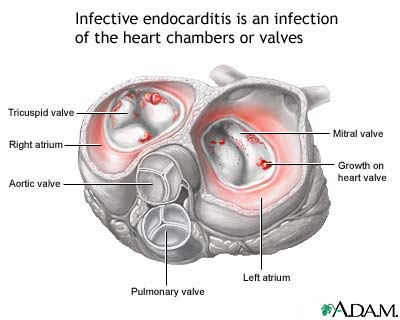
What About Heart Valve Surgery In India?
By Adam Pick on October 28, 2007
As many of you know, I had my heart surgery in Los Angeles, California at USC Medical Center by Dr. Vaughn Starnes. I believe I was fortunate for two reasons.
- First, I found a great surgeon.
- Secondly, I had excellent insurance. The costs of heart surgery can be very expensive. Even with my insurance, there were a number of out-of-pocket costs that were not trivial relative to my income.
For these reasons, I have learned of many patients traveling to India heart surgery centers to minimize the costs of their heart valve repair or heart valve replacement surgeries. India heart surgery is not new by any means. However, the outsourcing of heart surgery to India from foreign regions is a relatively newer alternative to minimize patient healthcare costs of medical systems in regions like the United States.
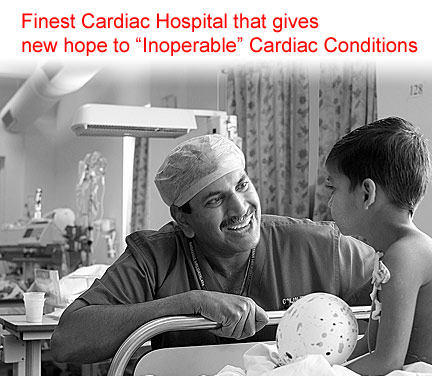
Help! Where Is My Tricuspid Heart Valve?
By Adam Pick on October 26, 2007
The email reads, “Adam – I was just diagnosed with severe tricuspid regurgitation. I feel stupid asking this but where exactly is my tricuspid valve in my heart. The doctor showed me a fake, plastic heart but I can’t remember right now. Please help!”
Don’t worry. I totally understand. Honestly, when I was diagnosed with severe aortic stenosis and regurgitation I was so shocked I don’t remember much of what my cardiologist told me besides, “You need open heart surgery!” That’s a tough one to forget.
Anyways, here is a human heart diagram that shows the various valves of the heart – aortic, pulmonary, mitral and the tricuspid.
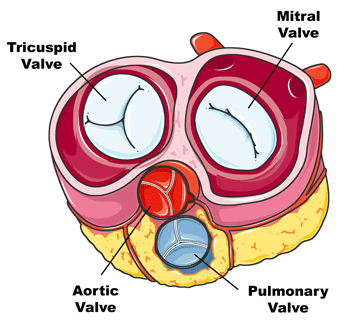
I hope this helps you better understand where your tricuspid heart valve is.
Keep on tickin!
Adam
What Musculoskeletal Issues Might Heart Surgery Patients Experience?
By Adam Pick on October 26, 2007
If there is one thing I know about going through heart valve surgery… you learn a lot about your body. From the moment you are diagnosed with the need to have heart valve replacement or heart valve repair, new words, new terms and new acronyms start flying in one ear and out the other.
At first, I called it medical mumbo-jumbo. Then, I realized I should sharpen up on my heart anatomy and learn what all these unique terms meant – bicuspid, regurgitation, leaflets, stenosis, Ross Procedure, percutaneous, catheter, mediam (broken sternum), etc.
Following surgery, the learning doesn’t stop. During the recovery, a new set of terms and tests will become part of your post-operative life.
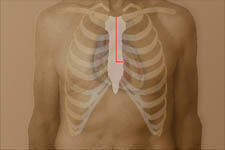
One of the terms I came to know very well was referenced by cardiologist time-and-time again. That term was musculoskeletal. Any time I raised a concern about the pain in my incision or the pain in my chest, my cardiologist would say, “Don’t worry about that… It’s musculoskeletal! You’ll be fine.”
Dr. Donald Ross & I Talk By Phone
By Adam Pick on October 23, 2007
Guess who I just got off the phone with???
Yup!!!
No other than Dr. Donald Ross, the inventor of the Ross Procedure, a special form of aortic valve replacement. To learn more about the Ross Procedure, click this link.
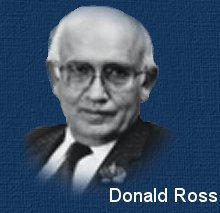
(So you know, Dr. Vaughn Starnes performed the Ross Procedure on me in 2005 at USC Medical Center in Los Angeles.)
Anyways, for being eighty plus years of age Dr. Ross is still a firecracker. The innovative surgeon was at his office working away in London.
I have to admit, it was quite surreal speaking with the man who developed the procedure that was now part of my heart. I guess it was a very good kind of surreal.
We talked a bit about how thankful I was for his innovative ideas on surgical approaches to enhancing heart health. Then, we spoke about my book, The Patient’s Guide To Heart Valve Surgery.
It turns out that Dr. Ross is on his way to China tomorrow to speak at a few heart conferences in Shanghai and some other cities in China.
Amazing, right?!!!
Keep on tickin!
Adam
Keeping Your Heart Surgery Recovery On Track With Recovery Milestones
By Adam Pick on October 13, 2007
Alright. You’ve made it through the surgery and your new or repaired valves are doing great!! You’re out of the hospital. Finally…you’re home. The recovery is ready to begin!
After week one, you look a little something like this after open heart surgery (if you are curious). If you have noninvasive heart surgery, the scar will be significantly smaller. This is a picture of me exactly seven days after my double heart valve replacement.
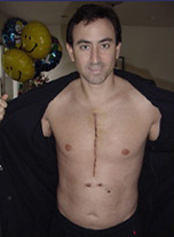
Chad Shieber, Marathon Runner Dies Due To Mitral Valve Prolapse And Heat
By Adam Pick on October 13, 2007
Over the past few years, I have been incredibly close to unwelcome tragedy relating to heart valve disorders. The word “tragedy” is the key part.
For those people who are asymptomatic, there are no warning signals. There are no mitral valve prolapse symptoms. There is no way of knowing the true impact of a mitral valve prolapse during a 26 mile race in 90 degree weather.
That was the issue with Chad Shieber who passed away during the Chicago marathon last week. While initial reports placed fatal blame on the unseasonal heat of my former hometown city, Chicago, the autopsy and medical records showed that the other conspirator of this untimely death was a defective heart valve. To learn more about mitral valve prolapse, click here.
Chad Shieber had a mitral valve prolapse. Chad Shieber had been cleared by his physicians to run the race.
This is a tough blog to write. Chad had a wife, three kids and was only 35 years old.
I am 35 years old. I am recently married.
While the similarities appear to stop there, my sadness for Chad Shieber and his family does not.
If only it wasn’t 90 degrees that day.
If only Chad stopped to take a break and walk on mile eighteen…
My thoughts and prayers go out to the Schiebers.
Adam
“What About Driving After Heart Surgery?” Asks Susie
By Adam Pick on October 7, 2007
A great question just came in specific to driving after heart surgery. The question reads, “Hi Adam – Great website! Quick question. When can I drive after heart surgery? Thanks, Susie!”

How Long Does A Mechanical Mitral Valve Replacement Last?
By Adam Pick on October 4, 2007
Finally, somewhat of an easy question… (You guys have been tough on me lately!)
Well, not really.
Let me explain….
There is a pretty standard answer to the question, “How Long Does A Mechanical Mitral Valve Last?”
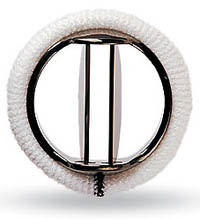
In fact, the durability of a mechanical mitral valve is one of the biggest advantages of selecting a mechanical valve versus a pig valve (porcine valve), cow valve (bovine valve) or human valve (donor) for heart valve replacement surgery. To learn more about mechanical valves, click here.
The trade-off for the long-lasting life of the mechanical mitral valve, however, is the ongoing use of Coumadin (blood thinners) and the potential sound of a mechanical valve.
That said, a mechanical mitral valve can is reported to last between 20 to 25 years. Some suggest that the life of a mechanical mitral valve may even be longer.
You have to remember two things. First, heart valve replacement surgery is a relatively new medical procedure. It’s only been within the past 30 to 40 years that heart surgery has become a standardized medical procedure.
Second, you need to remember that mechanical mitral valves are made of very durable materials including titanium. Thus, there is some uncertainty as to how long the mechanical mitral valves may last in the human body. It may very well be longer than the 20 to 25 years referenced above.
I hope that helps answer the question, “How long does a mechanical mitral valve last?”
Keep on tickin!
Adam
Robotic Catheter Technology – Cleveland Clinic Predicts Big 2008 Innovation Impact
By Adam Pick on October 3, 2007
Drum roll, please …
The innovation that will have the biggest impact on health care in 2008: robotic catheter technology.
That’s the prediction of a panel of Cleveland Clinic doctors. Clinic doctors pared down a list of about 100 of today’s coolest medical innovations to what they believe will be the most important in the coming year.
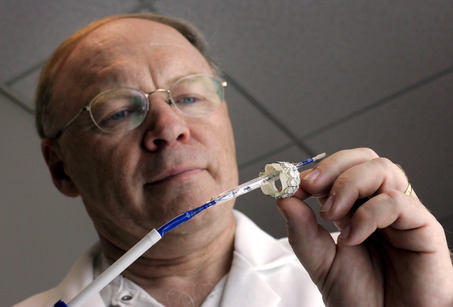
Heart Valve Pictures Of Regular Valves And Diseased Heart Valves
By Adam Pick on September 30, 2007
I’ll never forget my second opinion from Dr. Chaikin, a cardiologist in Los Angeles.
I was having my second echocardiogram…
Unlike many cardiologist, Dr. Chaikin was actually present during the echocardiogram. He studied the monitor as it flashed pictures of my beating heart and pictures of my heart valves. I studied the monitor as well – with great purpose and intent. But, I had no idea what I was looking for.
As it turns out, eight weeks later I would find myself having double heart valve replacement surgery via the Ross Procedure. Similar to most patients, I became much, much, much, much, much more interested in heart valve anatomy once I scheduled my open heart surgery with Dr. Vaughn Starnes.
One of the questions I had was, “What does a heart valve really look like?”
Numb Hands And Feet After Heart Surgery
By Adam Pick on September 26, 2007
Every once in a while, I receive an email that triggers a distinct memory from my heart surgery recovery. As you may have read in my story, I had a double heart valve replacement at the age of thirty-three in Los Angeles by Dr. Vaughn Starnes at USC.
Following my heart valve surgery, I experienced some challenges with my body temperature. I write about this in my book, The Patient’s Guide To Heart Valve Surgery.

What Is The Number Of Mitral Valves In The Heart?
By Adam Pick on September 26, 2007
I just received an email asking, “What is the number of mitral valves in the heart?”
To help answer the question, you will see a human heart diagram (below) that shows a top view of the heart. As you can see there are four heart valves in the heart. The heart valve types are – aortic valve, tricuspid valve, pulmonary valve and… one mitral valve.

So the answer to the question of “What is the number of mitral valves in the heart?” is… one mitral valve.
It is interesting to note that the mitral valve is the only bicuspid valve in the heart. That means that the mitral valve has only two leaflets. As you can see, the other three heart valves each have three leaflets.
However, it is possible for the other valves to have two leaflets. Personally, I had a bicuspid aortic valve which led to my heart valve surgery. Bicuspid valves can trigger heart valve disease including heart valve regurgitation and/or stenosis.
Keep on tickin!
Adam
Excellent Patient Quote: Heart Surgery Recovery By Kathy Benson
By Adam Pick on September 25, 2007
It happens often!
I will be talking with a heart valve surgery patient when they say something ab-sooooo-lutely brilliant.
As I learned when I had my aortic and pulmonary valves replaced, speaking with former cardiac surgery patients was incredibly helpful. There is a sense of related-ness that is simply unmatched.
For this reason, I started a new category in my blog called “Excellent Patient Quotes”. I’m going to use this space to share with you some of the inspirational, wise, motivational and loving comments that I hear when I’m out speaking with heart valve surgery patients and caregivers.
Today’s excellent quote is about the recovery from heart valve surgery. As I personally experienced, recovering from open heart surgery can be extremely difficult for the patient and their caregivers.

Kathy Benson – Heart Valve Surgery Patient (Minnesota)
Anyways, Kathy Benson from Minnesota recently had an excellent quote about mis-managing your expectations of recovery and comparing yourself to other patients. Here is what Kathy revealed:
“Don’t gauge your surgery and recovery on others. Each surgery is unique and each patient will handle things in a different manner. It seems that patients strive to become normal as fast as they can. What is normal? We will forever be heart surgery patients.”
In my opinion, that could not be more true.
Keep on tickin!
Adam
Ross Procedure Complications?
By Adam Pick on September 25, 2007
After I was diagnosed with severe stenosis and regurgitation in my bicuspid aortic valve, I was required to make a pretty significant decision.
Since the echocardiograms showed that my aortic valve was beyond heart valve repair, I needed heart valve replacement surgery. (FYI, I had two echocardiograms to confirm my heart valve condition. I highly, highly, highly encourage you do the same. Second opinions are critical.)
That said, I had to answer the question, “What type of heart valve replacement surgery should I have?”
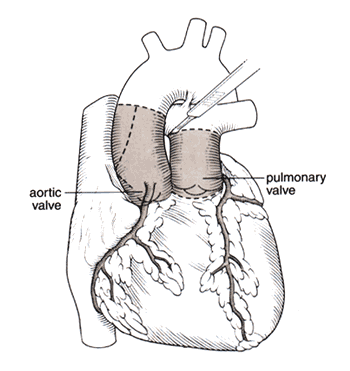
The Ross Procedure – Special Aortic Valve Replacement
Vicodin Addiction And Heart Surgery… Beware!
By Adam Pick on September 22, 2007
I’m just getting back from dinner at my mother-in-law’s house. Bonnie really is such a great cook! She made this cheese, blintz souflee that was yummm-eeeeee.
Anyways… During dinner, I started speaking with Robert, a retired pharmacist. We started talking about heart valve surgery and the problems I had during my recovery from double heart valve surgery (specifically cardiac depression). I mentioned my post-operative issue with Vicodin and Robert became very intrigued by the discussion.

Robert used to work as an I.C.U. pharmacist. He went on to tell some really interesting statistics about Vicodin and heart surgery patients.
Specifically, Robert told me that Vicodin is the preferred pain medication administered following cardiac surgery. Are you ready for the statistic that blew my mind?
For every ten patients who use Vicodin regularly following heart surgery, one of those ten patients become addicted. One in ten! Or, 10% of heart patients have an addiction to Vicodin!
I guess I was part of that ten percent group. Looking back on it, there was nothing fun about my Vicodin issue.
Keep on tickin!
Adam



